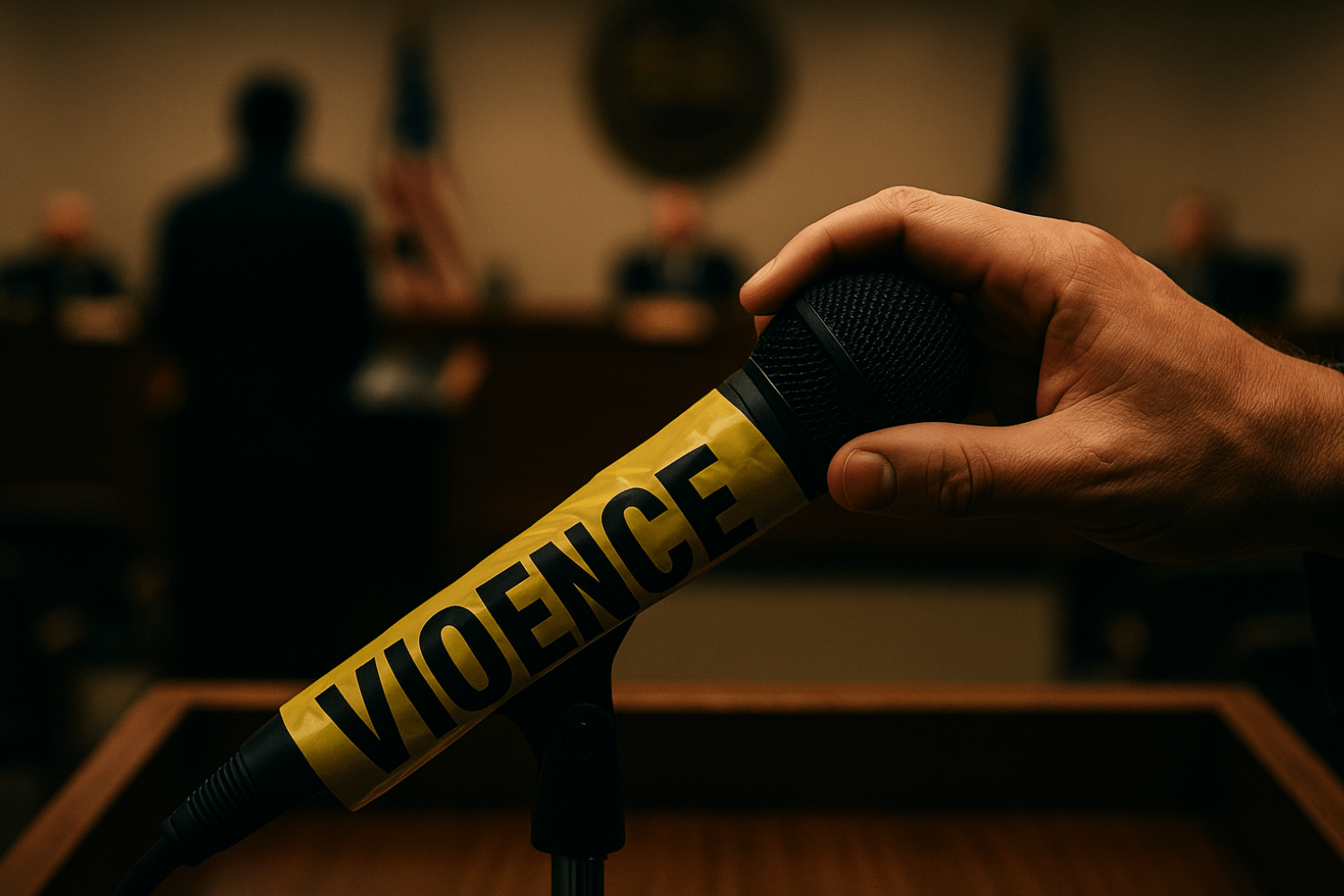Editorial Commentary
Public discourse in our communities is shifting, and not in a good way. In recent months, we’ve seen a troubling trend where personal feelings and political positioning are being used to redefine what counts as “violence.” If we’re not careful, this framing will erode citizens’ rights to speak, challenge, and hold their leaders accountable.
Feelings vs. Facts
Feelings matter. No one denies that harassment and real threats are unacceptable. But feelings cannot override the Constitution. Our rights don’t disappear because someone feels uncomfortable being questioned in public office.
We’ve already seen this locally:
• Ordinances targeting homelessness that brush against due process protections.
• Moves that quietly undermine Second Amendment rights without full transparency.
• Actions that risk violating the 14th Amendment’s promise of equal protection under the law.
And now, in the latest turn, we’re seeing a new framing: labeling verbal criticism of elected officials as “violence.”
Why This Is Dangerous
If we let “violence” be redefined to include criticism, we hand public officials the power to:
• Silence dissent.
• Discredit opponents.
• Avoid answering uncomfortable questions in open forums.
That’s not how democracy works. Public officials voluntarily assume a higher level of scrutiny when they take office. Attending public meetings and facing citizen concerns isn’t harassment; it’s accountability.
The Role of Public Meetings
Public meetings are where citizens and government meet face-to-face, but the structure of those meetings can vary widely between municipalities. In some cities, these sessions are designed to allow citizens to directly petition their government, raise concerns, and expect responses from their elected officials.
In other places, such as Lorain, public participation is offered but limited. Residents may be capped at a set number of speakers — often ten — and officials are not required to respond to questions or comments during the session. While these formats differ, the principle remains the same: public meetings are meant to ensure transparency and give citizens an opportunity to be heard.
If elected officials are shielded from criticism in these spaces, regardless of the format, we no longer have representative government. Open dialogue and the ability to raise concerns — even without guaranteed responses — are essential to accountability.
The Bigger Picture
This isn’t about one politician or one citizen. It’s about a growing national and local trend where language gets weaponized to blur the lines between discomfort and danger.
Yes, actual threats are serious and must be handled seriously. But conflating verbal disagreement with violence cheapens the definition and undermines the very real safety challenges many public officials face.
The Bottom Line
Criticizing a public servant isn’t violence. It’s democracy. Our Constitution protects the right to speak, to question, and to demand better from those in power, even when it’s inconvenient, even when it stings, even when it’s loud.
Public accountability isn’t always comfortable. But it is always necessary.
